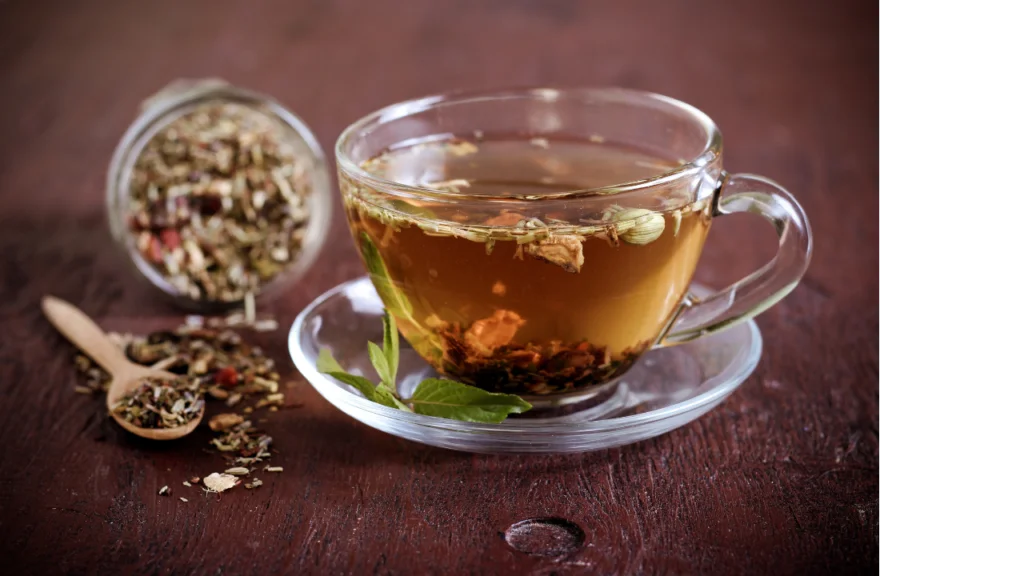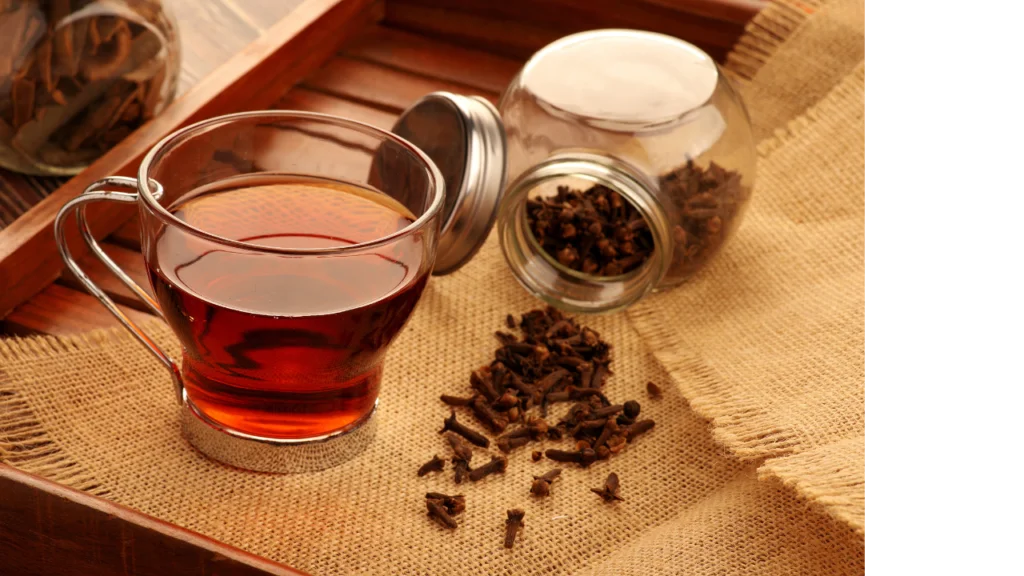Clove tea, with its rich aroma and distinct flavor, has been cherished for centuries not only for its taste but also for its numerous health benefits. From oral health to immune support, this spicy brew offers a wide array of advantages. Let’s delve into the captivating world of clove tea and explore its remarkable health benefits.
History of Clove Tea

Clove, derived from the flower buds of the clove tree, has a fascinating history dating back thousands of years. Ancient civilizations such as the Greeks, Romans, and Egyptians valued cloves not only as a spice but also for their medicinal properties. Clove tea was traditionally used to alleviate various ailments, including toothaches, digestive issues, and respiratory problems.
Nutritional Content
Clove tea is packed with essential nutrients that contribute to its health-promoting properties. Cloves are rich in vitamins and minerals such as vitamin C, vitamin K, calcium, and manganese. Additionally, they contain powerful antioxidants like eugenol, which plays a crucial role in combating oxidative stress and inflammation.
Health Benefits

1. Oral Health
One of the most well-known benefits of clove tea is its ability to promote oral hygiene and dental health. The antimicrobial properties of cloves help fight bacteria that cause bad breath, tooth decay, and gum disease. Gargling with clove tea can provide relief from sore throat and mouth ulcers.
2. Digestive Aid
Clove tea acts as a natural digestive aid, soothing the digestive system and alleviating symptoms such as bloating, gas, and indigestion. It stimulates the production of digestive enzymes, which aids in the breakdown of food and enhances nutrient absorption. Consuming clove tea after meals can promote smooth digestion and prevent discomfort.
3. Anti-inflammatory Properties
Clove tea exhibits potent anti-inflammatory properties due to its high concentration of antioxidants. It helps reduce inflammation in the body, making it beneficial for conditions such as arthritis, rheumatism, and inflammatory bowel diseases. Regular consumption of clove tea may alleviate pain and improve joint mobility.
4. Immune Boost
With its abundance of vitamins and antioxidants, clove tea serves as a powerful immune booster. It strengthens the body’s defense mechanisms, helping to ward off infections and illnesses. Drinking clove tea regularly can enhance immune function and promote overall health and wellness.

5. Respiratory Health
Clove tea is renowned for its effectiveness in soothing respiratory ailments such as coughs, colds, and bronchitis. The expectorant properties of cloves help loosen phlegm and mucus, making it easier to expel from the lungs. Additionally, the antimicrobial properties of clove tea can help combat respiratory infections and reduce inflammation in the airways.
6. Blood Sugar Control
For individuals struggling with diabetes or blood sugar imbalances, clove tea may offer significant benefits. Studies have shown that clove extracts can help regulate blood sugar levels by improving insulin sensitivity and glucose metabolism. Incorporating clove tea into a balanced diet may aid in managing blood sugar levels and reducing the risk of complications associated with diabetes.
7. Antioxidant Power
Clove tea boasts exceptional antioxidant power, thanks to its high content of phenolic compounds such as eugenol and gallic acid. These antioxidants help neutralize free radicals and protect cells from damage caused by oxidative stress. Regular consumption of clove tea may contribute to overall health and longevity by combating premature aging and chronic diseases.
How to Make Clove Tea

Making clove tea at home is simple and requires only a few ingredients. To prepare clove tea, follow these steps:
- Boil water in a pot or kettle.
- Add whole cloves to the boiling water (use approximately 1-2 cloves per cup of water).
- Allow the cloves to steep in the water for 5-10 minutes.
- Strain the tea to remove the cloves.
- Sweeten with honey or sugar, if desired.
- Serve hot and enjoy the aromatic flavor and health benefits of clove tea.
Precautions and Side Effects
While clove tea offers numerous health benefits, it’s essential to consume it in moderation and be aware of potential side effects. Excessive consumption of clove tea may cause stomach upset, nausea, or allergic reactions in some individuals. Additionally, pregnant women and individuals with certain medical conditions should consult with a healthcare professional before incorporating clove tea into their diet.
Conclusion
In conclusion, clove tea is not only a delightful beverage but also a powerhouse of health benefits. From promoting oral health to boosting immunity and aiding digestion, clove tea offers a natural and effective way to enhance overall well-being. By incorporating this aromatic brew into your daily routine, you can experience the remarkable advantages of clove tea and enjoy a healthier, happier life.
FAQs
Q1. Can clove tea help with weight loss?
A: Clove tea may indirectly support weight loss by aiding digestion and boosting metabolism. However, it’s not a magic solution for shedding pounds and should be combined with a balanced diet and regular exercise for optimal results.
Q2. Is clove tea safe for children to consume?
A: While clove tea is generally safe for adults, it’s not recommended for infants or young children due to the risk of choking on whole cloves. Instead, parents can consult with a pediatrician for suitable alternatives.
Q3. Can clove tea be used as a natural remedy for headaches?
A: Clove tea contains compounds with analgesic properties that may help alleviate headaches. Drinking clove tea or applying clove oil to the temples may provide relief from tension headaches or migraines.
Q4. How often should I drink clove tea to reap its health benefits?
A: For optimal health benefits, you can enjoy a cup of clove tea 1-2 times per day. However, it’s essential to
Q5: Is clove tea safe during pregnancy?
A: Pregnant women should exercise caution when consuming clove tea, as excessive intake may stimulate uterine contractions. It’s advisable to consult a healthcare provider before incorporating clove tea into your pregnancy diet.
